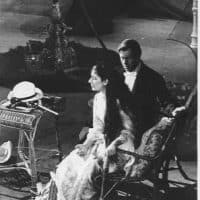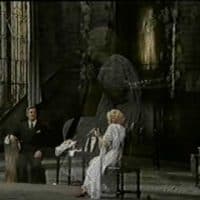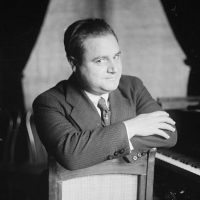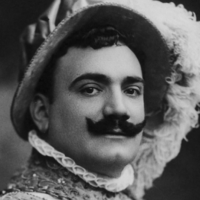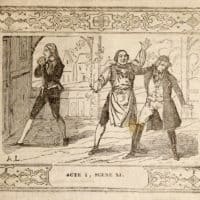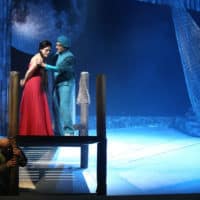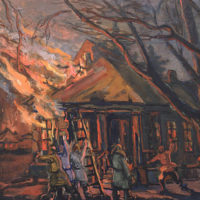Supertitles have become an essential part of the opera experience. While Bayreuth continues to hold out (and probably will forever), every major house I’ve visited employs either seat-back or above-the-stage titles in the local language, English, or both. This means that audiences don’t have to (and therefore don’t) prepare as much to go to the opera. In the olden days, if you wanted to know what was going on, you had to read at least a synopsis. If you wanted to get the details, you’d need to review the full libretto and listen to some highlights. Now, you can walk into an opera house knowing nothing about the work being performed, with full confidence that you’ll understand the plot. As for the details—that depends on the quality of supertitles, which is far from consistent. Here are some types of supertitles I’ve encountered in the wild.
The minimalist supertitles
I get the idea behind projecting fewer words: give the audience the information they need, and then stop distracting them and let them watch the action. But it can go too far. The Volksoper in Vienna is a bad culprit here, particularly when they present operettas with dialogue. A minute-long conversation will take place on stage, and the supertitle will read something like “(he tells a joke)”. Not even a translation—just a bland summary of what’s going on. I’m sure you’ve all encountered a less extreme version of this, where the supertitles obviously aren’t including everything the characters are singing.
The themed supertitles
Directors sometimes have the clever idea of twisting supertitles to match their concept of the plot, assuming people don’t know or care that the English doesn’t match the original. (This is a pet peeve of mine. I want supertitles to tell me what’s being said, not what you wish were being said. Change the libretto itself if you insist on changing the words!) Supertitles can make it clear whether the opening scene of Don Giovanni is a rape in a given production. They can change “traitor” to “terrorist” for a modern, political staging. Or they can translate the text of Rigoletto into “Rat Pack” slang, complete with “knockouts” and “big shots”.
The bland supertitles
Opera libretto: “mia vita, anima mia, mio ben, mio cor”.
English supertitle: “my love, my love, my love, my love”.
To be fair, English is really lacking in melodramatic terms of endearment.
The ambiguous supertitles
Have you ever been watching the supertitles during an ensemble and read:
” – My love will last forever
– (Rage consumes my heart)”?
Sometimes the context makes it clear who is singing what, and sometimes I sit there wondering which of the characters is thrilled and which one is secretly plotting revenge.
The mistimed supertitles
When someone makes a joke in an opera, there are two waves of laughter. First, everyone who reads the joke on the supertitles laughs. Then, the people who speak the language or know the opera laugh when the joke is actually delivered. Some of that is inevitable: the title needs to appear at the beginning of the line, and we read faster than the cast speaks (or sings). But if the supertitle operator is a little lost, the gap between those two waves of laughter can be quite wide—the joke can be read and processed before the right character even begins his/her line!
What about good supertitles?
I’ve been hard on supertitles in this post, so let me be clear: I love supertitles. They have made opera much more accessible to newcomers. Writing and operating supertitles is hard work, and many people do it well. (Operas are long—even mostly excellent supertitles can succumb to the traps above for a line or a scene.) Supertitle writers have to deal with lots of difficult questions: should songs-within-songs rhyme to indicate that they’re different? For an opera like Faust or Macbeth, should the titles draw on the original source material or translate the operatic transladaptation afresh? How much completeness is helpful, and how much is distracting? There aren’t obvious or consistent answers to these.
Do you like supertitles? Have you had any excellent or egregious supertitle experiences?
